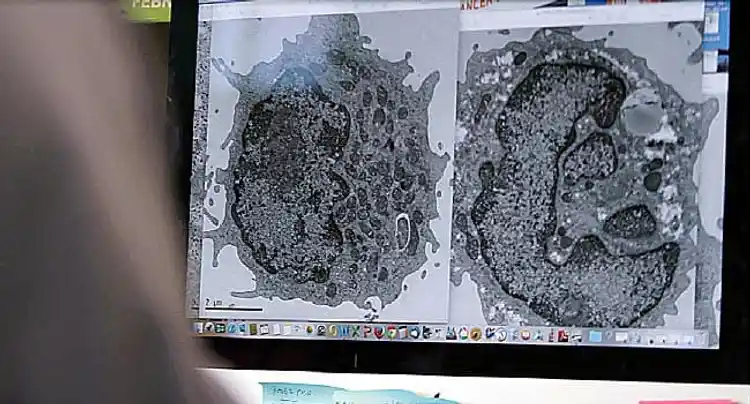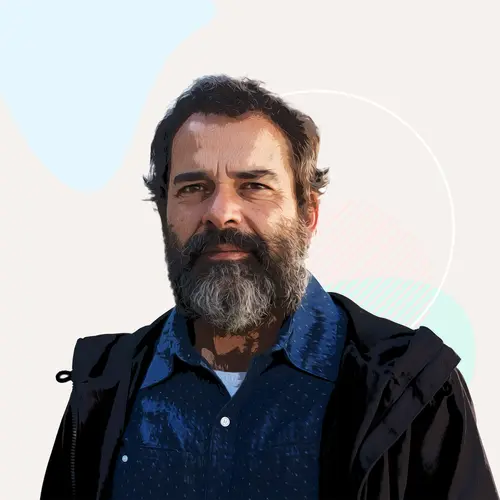Uniquely You: Exploring Tailored Medicine

Hide Video Transcript
Video Transcript
[MUSIC PLAYING]
The whole idea is that each person is unique. Each person's tumor is unique. Sometimes within one person, different tumors will be different from each other.
RAZELLE KURZROCK, MD: Now we have the tools to precisely understand what's wrong in each tumor. And we can treat every patient as an individual with a customized treatment for that patient.
PHILIP GREENBERG, MD: Particularly for what we do, which is about engineering the immune system to work against the patient's tumor, it is highly personalized. Because it really reflects taking cells out of that person, engineering those cells, and putting them back. There's very little that's more personal than that.
So the greater specificity, the greater individualism of that person's targeted therapy, I think is going to be where we go.
[MUSIC PLAYING]
MICHAEL POSTOW, MD
Tailored medicine is really a type of treatment where we're trying to tailor a treatment to match a specific person and that specific person's tumor. The whole idea is that each person is unique. Each person's tumor is unique. Sometimes within one person, different tumors will be different from each other.
RAZELLE KURZROCK, MD
We've actually taken to calling them malignant snowflakes. If you look at the structure of snowflakes, each one is unique, and each one is complicated. PHILIP GREENBERG, MD
It's about what makes your tumor your tumor. How is that different from somebody else's tumor. And what are the Achilles heel of the tumor that you have that we can go after. DAVID MALONEY, MD, PHD
I think there are many ways of personalizing cancer therapy. The first ways we tried to do them back in the '70s and '80s and '90s was to cut an antibody just specific for a patient's tumor. RAZELLE KURZROCK, MD: Now we have the tools to precisely understand what's wrong in each tumor. And we can treat every patient as an individual with a customized treatment for that patient.
MICHAEL POSTOW, MD
Targeted therapy works usually by a pill, sometimes an intravenous infusion. And before we give the patient this type of treatment, we need to test their tumor to see what types of either mutations or abnormalities that we could find in the tumor. ALEXANDER DRILON, MD
And we would take that sample and take out the tumor's genes, or the DNA, and send that for testing. The question then is, is there a drug that's already approved by the FDA? And if there isn't, there may be a drug on a clinical trial that the patient might be a candidate for. PHILIP GREENBERG, MD: Particularly for what we do, which is about engineering the immune system to work against the patient's tumor, it is highly personalized. Because it really reflects taking cells out of that person, engineering those cells, and putting them back. There's very little that's more personal than that.
ALEXANDER DRILON, MD
I think targeted therapy is promising because, one-- we've seen how the therapies that we've already developed have helped patients. We've seen dramatic benefit, dramatic responses in select patients with targeted treatment. ALISON CAIRNES
I definitely think targeted therapy saved my life. When I got the news that the metastases seemed to be gone, and they were just looking at three little parts in my liver, I kept waking up and going, I'm going to be cancer-free. The targeted therapy is working. MARK TOSE
In my generation, if you've got acute leukemia, that was pretty much it. And now that's not the case. There's a lot of hope. I plan to be around for a long time. RAZELLE KURZROCK, MD
To me, what the next three years is going to bring is even more sophisticated ways to match patients to drugs. MICHAEL POSTOW, MD
We are going to see targeted therapy moving to an area of even greater specificity for each individual patient. We're going to see patients with maybe three or four or five different types of mutations taking cocktails of various different medications intended to disable multiple parts of that patient's tumor. So the greater specificity, the greater individualism of that person's targeted therapy, I think is going to be where we go.
[MUSIC PLAYING]
